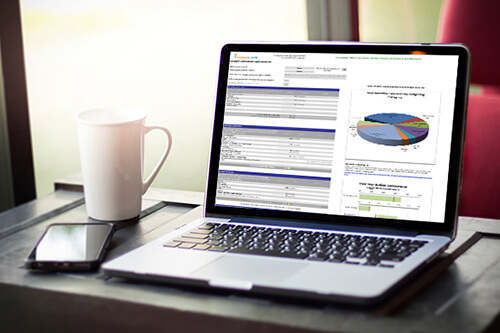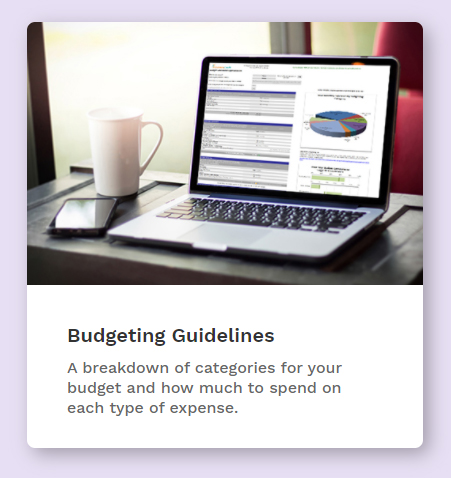Thinking of Taking Your CPP Retirement Income Benefits Early?
Financial, mental, and physical health are key factors to consider before making a decision
By Monika Ritchie
If you or a loved one are getting closer to retirement age, you might be wondering if a cash infusion to your household budget in the form of Canada Pension Plan (CPP) retirement income benefits is the way to go. With inflation holding steady and still impacting the price of everything from groceries to housing, making ends meet and planning for retirement can feel daunting.
The decision to take your CPP benefits earlier or later depends on a variety of factors, including your physical and mental health, your family or social support network, and your current financial situation. These will all have a significant impact on the decision you make. With that in mind, here are some considerations to be aware of to help you make an informed choice.
How to Budget for Retirement When the Cost of Living is High
What Is the Earliest I Can Start Collecting CPP Retirement Income?
While the majority of Canadians take their CPP at age 65, the earliest you can start receiving your CPP retirement income is at age 60. While ‘early’ retirement can certainly sound appealing, there are drawbacks – financial and social – to this option that you will want to be aware of.
What Does Deferring Your CPP Retirement Income Mean?
Deferring your CPP retirement income simply means waiting longer to start collecting it. The traditional retirement age in Canada is 65 and despite the benefits associated with deferring CPP to age 70, very few people choose to do it. In fact, a 2022 study found that only 5% of applicants took their CPP at age 70. Some retirees also aren’t aware that they can take their benefits up to 5 years later.
What Are the Benefits of Deferring CPP Retirement Income?
Research shows a host of benefits to deferring CPP retirement income until age 70 instead of taking it at the typical 65. One of the most significant benefits is having increased retirement income. If you defer your CPP retirement income until after age 65, payments will increase by 0.7% each month (or by 8.4% per year), up to a maximum increase of 42% if you start at age 70. There is no additional benefit if you wait longer than age 70.
Your Age Affects Your Pension Amount
The amount of money you receive for your CPP payments is lower if you start collecting before age 65. The payments will decrease by 0.6% each month (or by 7.2% per year), up to a maximum reduction of 36%. If you start drawing your CPP payments at age 60, the amount you receive for the duration of your payments will be over one-third less than if you waited until age 65 (the amount will not go up when you turn 65).
Lifespans are Increasing, But So Is the Cost of Living
Data from Statistics Canada found that in 2022 Canada was home to nearly 13,500 centenarians, a 43% increase from 2018. A longer life expectancy, while it’s something that many celebrate, also means you’ll have to make the money stretch into your later years.
Taking your CPP before age 65 means you’re receiving less money that will need to last for a longer period of time. Inflation also means that the money you’re receiving will be worth less than when you first started receiving it (although the government does increase CPP payments a little each year). Leaving yourself short in retirement can mean a very tight budget that doesn’t meet your needs. Then the temptation to go into debt to cover medical and lifestyle expenses increases. If you own your home, you may consider a reverse mortgage or utilize a Home Equity Line of Credit (HELOC) beyond your ability to keep up with the payments.
You might be interested in a free webinar to help you digest all of this information. Living Well on Retirement Income is a fun and interactive session that will teach you how to increase income, reduce expenses, and live without having to rely on credit in your retirement years.
The decision to delay your CPP Retirement income depends on a variety of factors. Your health, family and support system, and your financial situation all impact how and when you can retire
Dawn of Your Golden Years, 5 Steps to Take as You Prepare for Retirement
What Are Your Sources of Income When you Retire?
Before deciding whether to take your CPP benefits early or to defer them by up to 5 years, make sure you know what all of your sources of income will be once you retire. This is a crucial first step as it will help you build a sustainable retirement budget. Your retirement income will usually come from one or more of the following:
- CPP/QPP retirement pension
- Old Age Security (OAS) and if you have low income in retirement, the Guaranteed Income Supplement (GIS)
- Earnings, if you continue to work in retirement
- Employment-related pension plans
- Registered Retirement Savings Plans (RRSPs)
- Tax-Free Savings Accounts (TFSAs) and other investments
Canadian Retirement Income Calculator
Debt payments can eat up a significant portion of your retirement income. If you’re wondering how to retire debt-free, check out 10 Steps to Retire Without Debt. This webinar focuses on learning more about government pensions available to you, and the steps you can take to increase your income and decrease your debts ahead of retirement.
Financial Hardship Reasons for Unlocking Locked-In Pension Funds
Should I Wait to Take CPP Payments After Age 65?
Holding off taking your government retirement benefits until age 70 and getting double the CPP payment might sound super tempting. However, there are a lot of factors and calculations that you need to consider before you make the decision to start drawing your CPP benefits between the ages of 60 and 70.
Your Finances
Your finances will have a direct impact on the age that you can retire at. If you are worried about debt, are behind on payments, and are struggling with other expenses, waiting until age 70 to start collecting your CPP retirement income, might not be an option for you.
If you have other sources of income such as pensions, investments, inheritance, other savings, or even a part-time job, you have much more flexibility in how and when you retire.
For those who are able to keep working, you can choose to get the increased Post-Retirement Benefit (PRB) later. You may also choose to stop contributing to the CPP after age 65 if you are still working. Or if you prefer to stop working sooner, you can build a budget based on smaller CPP payments, as long as your other sources of income or support make up the difference.
Once you apply to receive your CPP benefits, if you took time off work or worked a reduced amount to care for young children, you may qualify for an enhanced CPP benefit. This means that if you qualify, your CPP payments will go up. You can apply for the CPP child-rearing provision at the time you apply for CPP or once you already receive a CPP benefit.
How to Get Out of Debt Quickly – for Those Nearing Retirement
Your Mental Health
‘Early retirement’ at age 60 can sound tempting. Relaxing on a beach, going fishing, or simply spending more time with family and friends sounds far more pleasant than the daily nine-to-five grind. However, that’s not the case for everyone. A work schedule gives your days structure and meaningful work can be a great reason to get out of bed each day. But for some, retiring early can mean decades without the stimulation and socialization a job brings.
Many people, especially those closer to retirement age, have built relationships and community through their many years of work. Being without that daily social interaction and activity can lead to feelings of isolation, loneliness, and mental health issues such as anxiety and depression.
How to Deal with Debt Stress and Get Debt Relief
Your Support System
Beyond the financial implications of taking your CPP benefits, there are also other factors to consider. Do you have a support system and/or a social network of family and friends to turn to when you retire? Studies show, older adults who continue to socialize and avoid social isolation are also considered less at risk of premature death.
Your Physical Health
Your physical health will have an enormous impact on how long you remain in the workforce. If you are generally healthy and active, enjoy your job and the socialization that comes with it, you may choose to delay retirement or keep working on a part-time basis.
A 2015 study published in the CDC journal Preventing Chronic Disease, compared people who didn’t work past the age of 65 to those who did. People who worked were three times more likely to report being in good health and about half as likely to have serious health problems.
However, if you are already struggling with your health or have a chronic condition, it may be too difficult to keep working. That can not only lead to a lower CPP pension amount, but it can also be a serious drain on your retirement funds. A 2023 survey from SunLife Financial found that only a third of Canadians are factoring chronic conditions into retirement plans
Deferring CPP Payments Can Be a Good Option, But Not for Everyone
If you’re healthy, expect to live a long life, or have access to other sources of income, you may choose to start receiving your CPP retirement benefits later. This will result in a larger monthly pension, which could help protect you from outliving your savings. If this is your situation, review your entire investment portfolio with a Certified Financial Planner (CFP) or Financial Advisor (FA) at your bank or credit union who is qualified, experienced, and licensed to help you come up with a comprehensive retirement income plan. Given that there can be significant tax implications, the CFP or FA might suggest consulting with an income tax professional as well.
However, if you’re struggling with debts or household bills, or you’re simply not well enough to keep working, waiting to receive CPP benefits might not be the right option for you.
How to Save for Retirement in Canada on a Small Income
Not Sure Where to Start? Reach Out for Help
If you need help reviewing your investments or creating an investment plan to meet your retirement goals, reach out to a Financial Advisor. Check with the Canadian Securities Administrators if the advisor you plan to seek advice or guidance from is registered. However, if you have questions about dealing with debt and budgeting so that you can be financially prepared to live on your post-retirement income, reach out to us. Our accredited financial counsellors can look at your financial situation and help you make a plan that’s suited to your specific situation. Or, if you prefer learning about personal finance topics online, we offer free, engaging webinars with accurate information you can count on. We have fresh topics every month, so be sure to check out our webinar schedule to see what’s coming up.








